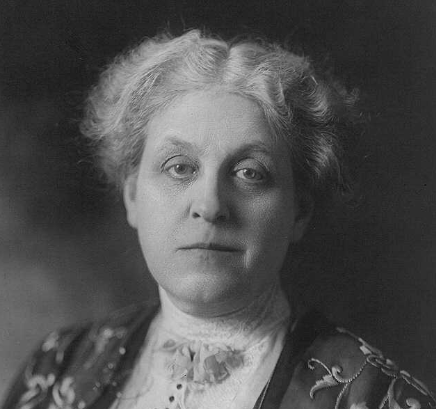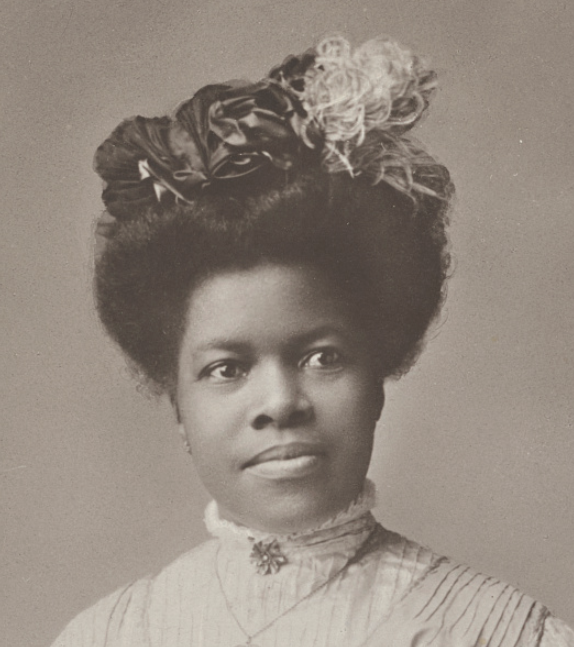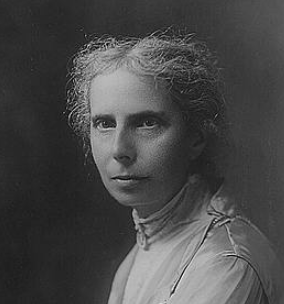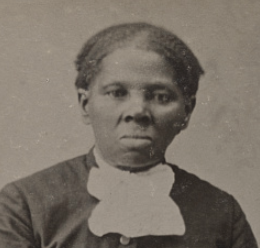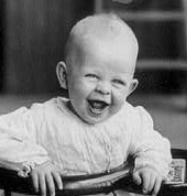Librarians play such an important role in the TPS Teachers Network that I'd like to celebrate them here during School Library Month (April). When I saw the canva template below, I wondered if any members of the Network might want to give a shout out to a librarian here who has helped them in some way.
You can use the template to fill in the center with the avatar of a librarian you'd like to acknowledge. Next, tell us what you have learned or enjoyed because that librarian took the time to write about a teaching idea or shared a special primary source.
You don't have to use the template, of course. Just a shout out in words would be welcome, I'm sure, given the pressures so many librarians - school, public, academic, and special librarians - are under in 2023.
Pre K - 2 3 - 5 6 - 8 9 - 12 13+ Library School Library Month
Replies displayed by creation date
Nice idea  Mary Johnson! I certainty appreciate all the guidance from librarians in our TPS Teachers Network as well as from the Library of Congress staff that pop in. And one of my favorite places to go for support is Ask a Librarian!
Mary Johnson! I certainty appreciate all the guidance from librarians in our TPS Teachers Network as well as from the Library of Congress staff that pop in. And one of my favorite places to go for support is Ask a Librarian!
Also all the TPS Teacher Network Mentors are so helpful and full of inspiring ideas. Seven of the Mentors are librarians!
Danna Bell also had a helpful blog post in Teaching with the Library - Primary Sources & Ideas for Educators: Encouraging Citizens to “Wake Up and Read” – Celebrating National Library Week and School Library Month with Primary Sources
I took some re-mix liberty with this Library of Congress poster: The vacation reading club - join now at your public library and selected a Library of Congress primary source as my honoree - So many librarians have paved the way, and still are.

And I also appreciate all the inspiration that Librarian  Mary Johnson gives us in this Network!
Mary Johnson gives us in this Network!
I always say that I think librarians have the best jobs in the school (but I am a little biased, as someone who is working to prepare people for those roles).
I remember all of my own school librarians so vividly! Mrs. Tallon who introduced me to the locally famous works of Katherine Tucker Windham (who I later helped induct into the Alabama Women's Hall of Fame), Mrs. Guynes who left me and another girl alone in the library for about an hour every day while she ate lunch (and smoked), and Mrs. Hale, who lived down the street from me and let me use the xerox machine for zine projects and who, I have just discovered from idle googling, graduated from a high school where I worked as a school librarian. And I remember all of those spaces and collections so vividly.
Thank you for that lovely trip down memory lane,  Mary Johnson
, and congratulations to all my librarian colleagues and thank you for your work!
Mary Johnson
, and congratulations to all my librarian colleagues and thank you for your work!
Oh,  Wendy Stephens
, I hope everyone will read the piece you shared about Katherine Tucker Windham, right down to the detail that Harper Lee recommended her for one honor! I also loved reading about the librarians who influenced you and who gave you a place to be you in their libraries.
Wendy Stephens
, I hope everyone will read the piece you shared about Katherine Tucker Windham, right down to the detail that Harper Lee recommended her for one honor! I also loved reading about the librarians who influenced you and who gave you a place to be you in their libraries.
 Mary Johnson
, this sent me looking for a copy of the documentary about KWH, and I was lamenting all the weeded DVDs when I found a version on Alabama Public Television. (The whole film streams for me here in state.) Windham is from Clarke County, and our Governor, Kay Ivey, is from neighboring Wilcox county, and the two have the same distinctive accents. I have a notion that the state may have been primed for Governor Ivey by fond associations of listening to Windham's recordings in school libraries.
Mary Johnson
, this sent me looking for a copy of the documentary about KWH, and I was lamenting all the weeded DVDs when I found a version on Alabama Public Television. (The whole film streams for me here in state.) Windham is from Clarke County, and our Governor, Kay Ivey, is from neighboring Wilcox county, and the two have the same distinctive accents. I have a notion that the state may have been primed for Governor Ivey by fond associations of listening to Windham's recordings in school libraries.
I can't imagine GRADING catalog cards like those your mother had to type, but I do always try to emphasize to my students that cataloging is an art as well as a science and you need to adjust records for your local users. I want them to be able to tell whether they need to create a new record or add additional access points based on their local utility. After spending library school learning about standards, I remember going to a public library in Iowa as a systems consultant, and just watching slack-jawed as the technical services librarian was adding subject headings willy-nilly, with no attempt at any controlled vocabulary or systematization. She was very user-centered.
I found the 1939 master's thesis of one of my grandmother's friends in a local university digital archive today. It's fun reading around the early newspapers here, and I am struck by how readable it is. I have also been poking around on one of the really robust local history sites which centers on the Rison/Dallas Mill communities in northeast Huntsville. It is kind of like the Alabama Women's Hall of Fame -- a really interesting website with slightly off-putting, dated design. In the case of the AWHF, I had worried about the transition as Judson College, the Baptist women's school where it was housed, closed permanently during the pandemic, but when looking for that entry, I found the note that "With Judson's closure in 2021, the Hall of Fame will announce a new location. The 2022 induction ceremony will be held at the University of West Alabama in Livingston." Good to know.
What a cool idea to put a librarian's portrait into a Library of Congress poster,  Cheryl Davis
!
Cheryl Davis
!
In an odd twist of fate, my own mother and mother-in-law were both school librarians. Each was married to a farmer, and each taught school before entering that strange Ozzie and Harriett, post-war period. I was always proud of my mother for entering graduate school at the age of 50 (once the kids went off to college) to get her library degree. I still remember the piles of card catalog cards that she had to type perfectly - no errors in spaces or spelling allowed - for her cataloguing class!
Were your mom's catalog cards typed or hand written? I have always been fascinated by "Library Hand" that was taught to librarians so that the card catalog would be more "uniform." Here are some more examples from a blog post from the Special Collections of Cambridge University. I love showing my students old card catalogs and explaining how they could not simply type their keyword on a computer. I distinctly remember using the card catalogs and sifting through the cards. And this remains one of my favorite parts of the LOC--their Card Catalog room off of the Main Reading Room. I am so glad that they have kept that.
My mother typed her catalog cards on a manual typewriter, but she was very fast, having majored originally in "commercial education." She taught business, typing, and shorthand during World War II. I still have her typing chart of the keys on a manual typewriter somewhere in my basement. At one point, she tried to teach me shorthand, but I wasn't very motivated even though it was kind of fun and a bit like learning a foreign language.
I confess that I had never heard about Library Hand. I, too, found this information fascinating.
A different spin on the topic.
Pam didn't influence my career choice, she didn't find information for me. She dropped a huge stack of daily check out cards on her living room floor and spent a lot of time resorting them. Her husband, who was just was starting a software company hired a computer programmer. These 2 innovators developed one of the first ever automated library check out systems. This was in the era of Apple IIe computers and bar codes printed with an ink-jet printer. (1981) Why was Pam an influence? With the onset of the automation system I became interested in technology and along the way acquired many skills, became an early adapter in many areas, worked to influence change, and met many people. I might not be part of TPS if it hadn't been for that pile of dropped cards.
When I started a new job in a different district I was asked to "get the place automated." We did, and remodeled the check out desk like the one at the top of this page to hold a computer.
As a final note, my mother was a school librarian back in the 40's and a substitute when I was in high school. I remember her bringing home card catalog drawers to file and I saw her handwritten records still remaining in the high school library.
Testimonials
- I love that there is new info on the site daily!
- I had a wonderful time working with the Library of Congress and learning about all of the resources at my fingertips!
- The TPS Teachers Network has an equal exchange of ideas. You know it's not a place where you're being judged.
- My colleagues post incredibly fine resources and ideas....the caliber of the suggestions and resources make me feel that I take a lot from it. It's a takeaway. And I hope that I can give back as much as I get.
- Going into this school year, I have a fantastic new resource for my own instruction and to share with my colleagues!
- I am very glad that I discovered the TPS Teachers Network through RQI. Great resources can be hard to find out there on the internet!










